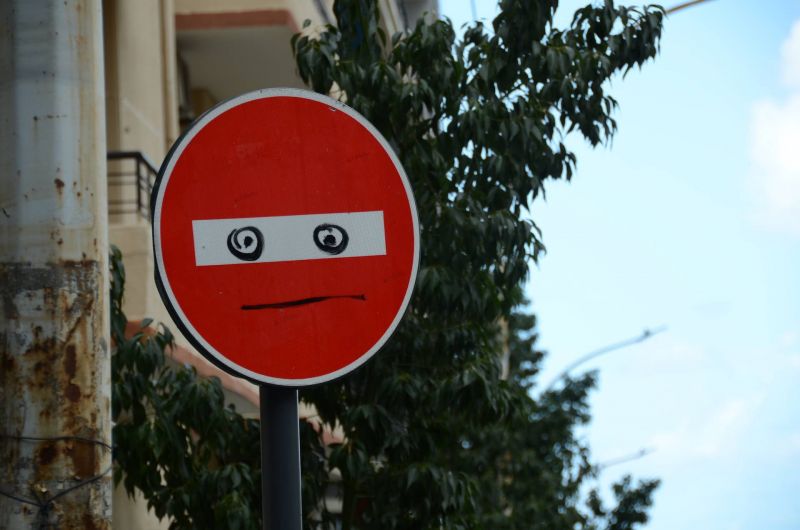
A street sign in Beirut's Mar Mikhael neighborhood on March 9, 2024. (Credit: Sandrine Frem and Pao Ibrahim/L'Orient Today)
The informal economy may have reached 70 percent of Lebanon’s total GDP since the start of the economic crisis in 2019, according to the Lebanese Business Leaders Association (RDCL). The Central Administration of Statistics (CAS) previously estimated its share at 30 percent of Lebanon’s GDP.
In 2022, CAS published a study based on the results of surveys carried out between December 2021 and January 2022 and found that at least 62.4 percent of residents worked informally in the country (or without being registered with the National Social Security Fund).
Israeli bombardment has reportedly burnt millions of square meters of tobacco and olive groves — the main source of income for many southern Lebanon residents — since cross-border fighting broke out in October between Israel and pro-Hezbollah forces.
The price per kilowatt-hour (kWh) for private or neighborhood generators, which supply power to make up for insufficient energy supply by Électricité du Liban (EDL), has been set at LL33,984 for the March bills, which generator operators will start collecting by the beginning of next month.
The new prices, set by the Energy Ministry, are a very slight decrease (-0.8%) compared with the LL34,286 set for February bills. It had risen by 5.4 percent at the time of the previous update for February.
The Energy Ministry sent a letter last week to France’s TotalEnergies demanding that the company hand over a report on the results of gas drilling in the offshore Block 9 before mid-April, a source in the ministry told L'Orient Today.
Exploratory drilling for offshore gas at Block 9 of Lebanon's Exclusive Economic Zone (EEZ), off the coast of Sour, started in August 2023, but has so far not yielded any gas discoveries.